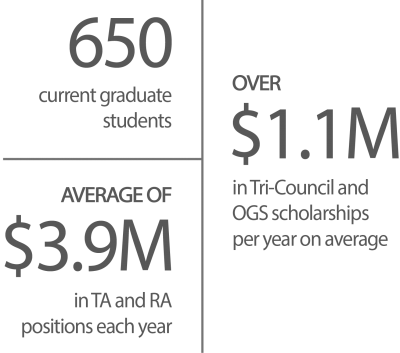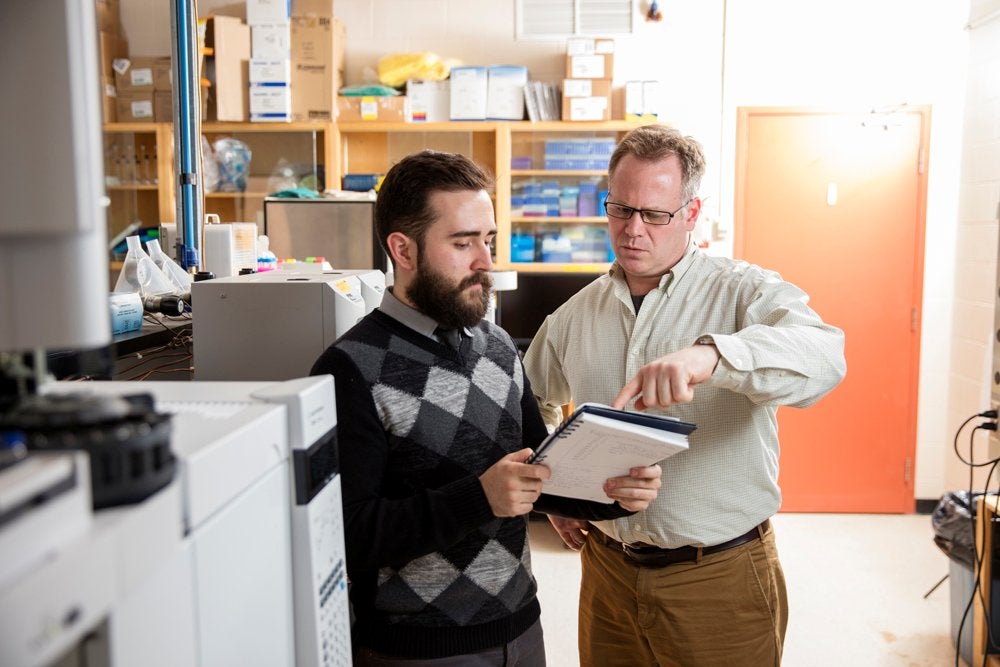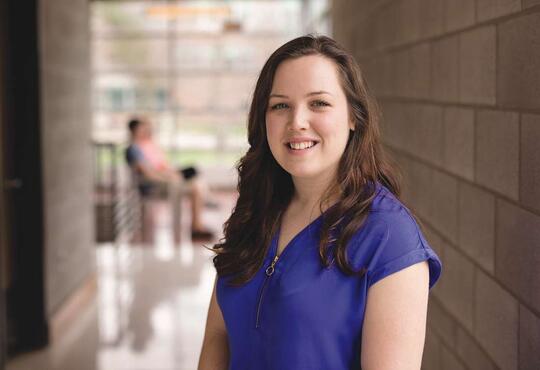Building on foundational knowledge, our graduate programs put scholarship in the context of real-world issues.
Whether the end goal is a career in academia or the public or private sector, our graduate programs allow students to explore complex concepts, generate new knowledge and learn from a global network of researchers and organizations. We do more than just train the leaders of tomorrow — we connect them with the leaders of today.
Programs that accelerate careers
With a changing academic landscape, more students are looking to continue their education while maintaining their careers. Home to the first online Master of Health Informatics in Canada, Applied Health Sciences’ progressive approach to education allows students to enhance their knowledge in ways that fit their lifestyles and career goals:
- ONLINE PROGRAMS: In our online master’s programs, students can complete their degree from anywhere in the world. Combining convenience with a global student body, these professional programs are designed to equip students with skills to become leaders in their industries.
- BLENDED PROGRAMS: Our blended programs offer an integrated learning experience with options to complete courses both online and on campus. The flexible approach allows students to customize their program to best suit their learning styles.
- RESEARCH-BASED PROGRAMS: Our traditional research-based graduate programs allow students to work closely with our world-class faculty members to produce original research and generate new discoveries and insights. Research-based programs can be completed on a full- or part-time basis.
Our graduate programs
- Health Informatics (MHI)
- Public Health (MPH)
- Health Evaluation (MHE)
- Public Health and Health Systems (MSc)
- Kinesiology (Msc) » Recreation and Leisure Studies (MA)
- Public Health and Health Systems (PhD)
- Kinesiology (PhD) » Recreation and Leisure Studies (PhD)
- Collaborative program in Aging, Health and Well-being (PhD)
- Collaborative program in Work and Health (PhD)

GRADUATE RESEARCH SPOTLIGHT: Nutritional forensics
One of the biggest problems with dietary interventions is low adherence rates — people fall off the bandwagon or don’t follow the directions given by their health-care professional. While there are strong associations between the consumption of omega-3 fatty acids and good heart and brain function, they must be consumed regularly, either from fish or as supplements, to make a difference.
Juan Jose Aristizabal Henao (above, with supervisor Ken Stark) is exploring ways to more accurately measure dietary intake of omega-3s by identifying how fat molecules change in your blood, both short- and long-term. His work could mean that with a simple blood test your doctor could see if you’ve been taking your supplements regularly or adhering to dietary advice.
"As a PhD student in Applied Health Sciences, I’m not just developing knowledge to become an expert in my field; I’m developing industry connections and knowledge translation skills to move my research beyond the lab and improve lives."
- JUAN JOSE ARISTIZABAL HENAO, PhD student








